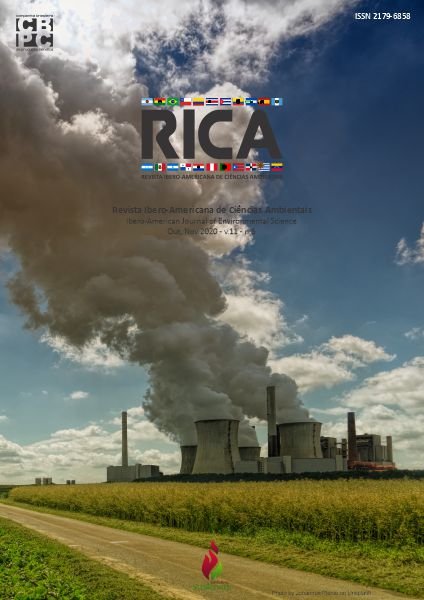The populational behavior and the active hotspots in the Lagoa da Ilha District
DOI:
https://doi.org/10.6008/CBPC2179-6858.2020.006.0041Keywords:
Burns, Hotspots, Lagoa da Confusão, WildfiresAbstract
The Setor Lagoa da Ilha district is the larger register of burns, burned and wildfires of Tocantins county Lagoa da Confusão, which is located at the south-west microregion with the third largest state territory, it has a population over than 10,000 inhabitant, economic base in agriculture, high afforest at thoroughfare, and, shows the record of active hotspots at the historic series of 2009-2018. In complementary verification, this county has the second worst state schooling rate and the better Agriculture PIB, whose PIB per capita is greater than 39,000.00, and, in front of this reality controversial the researches defined the objetctive comprehend the populational behavior of the district residentes, that is the territorial profile of this search. The metodology is the quail-quantitative with the use of bibliographic search and documental analysis to qualitative character subsidy, while the quantitative character happens in field research the with aplication of search a tool questionary of ecocultural approach for the data collect, and the interpretation of these occurred throughquantitative analysys proportional to sampling obtained, except of respondentes that reached some exclusion criteria. The questionary was composed of eleven variables, of which nine were used in this search, and previous to your application was obtained the prior authorization from the Comitê de Ética em Pesquisas em Seres Humanos of the Universidade Federal do Tocantins. At end of this study, concludes that the proposed objective was total character, because the populational behavior of Setor Lagoa da Ilha of Tocantins county Lagoa da Confusão as comprehended.
Downloads
Downloads
Published
Issue
Section
License
Copyright (c) 2020 Ibero-American Journal of Environmental Sciences

This work is licensed under a Creative Commons Attribution-NonCommercial-NoDerivatives 4.0 International License.
The CBPC - Companhia Brasileira de Produção Científica (Brazil CNPJ: 11.221.422/0001-03) the material rights of the published works. The rights relate to the publication of the work anywhere in the world, including rights to renewals, expansions and dissemination of the contribution, as well as other subsidiary rights. All electronically published works may subsequently be published in printed collections under the coordination of this company and / or its partners. The authors preserve the copyright, but are not allowed to publish the contribution in another medium, printed or digital, in Portuguese or in translation.









